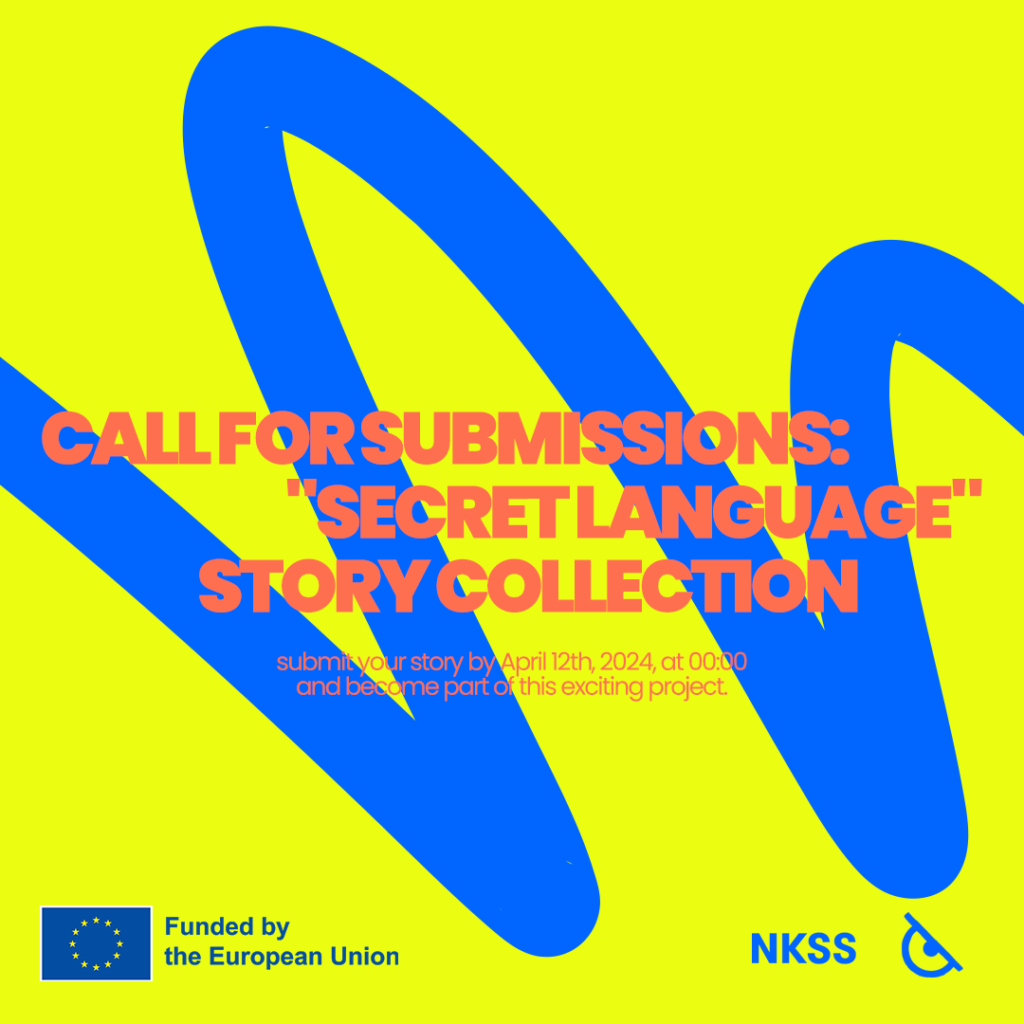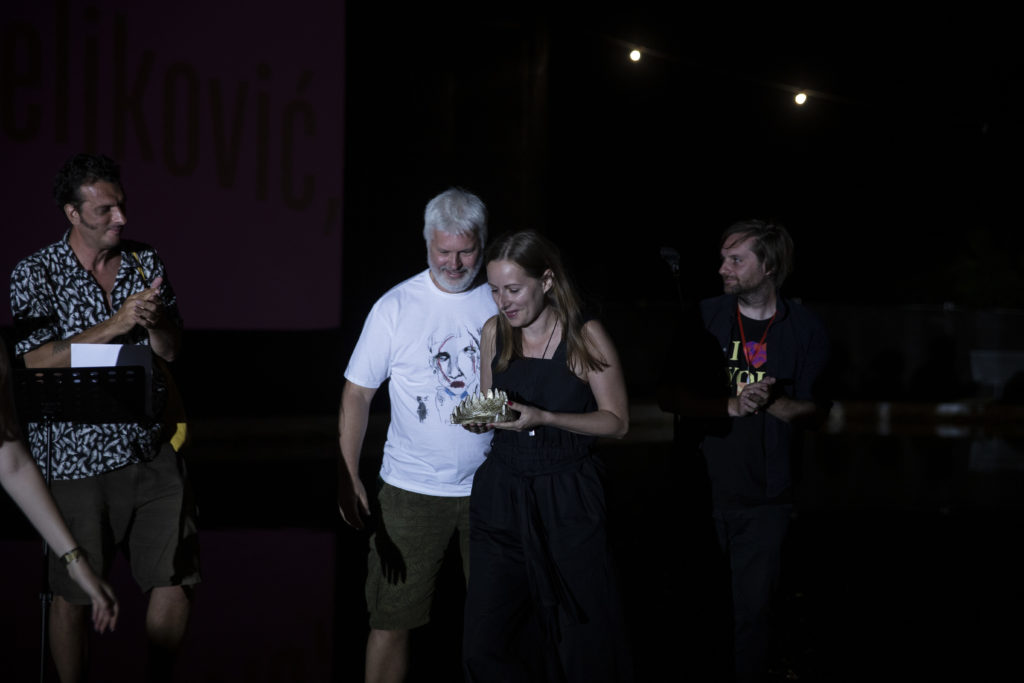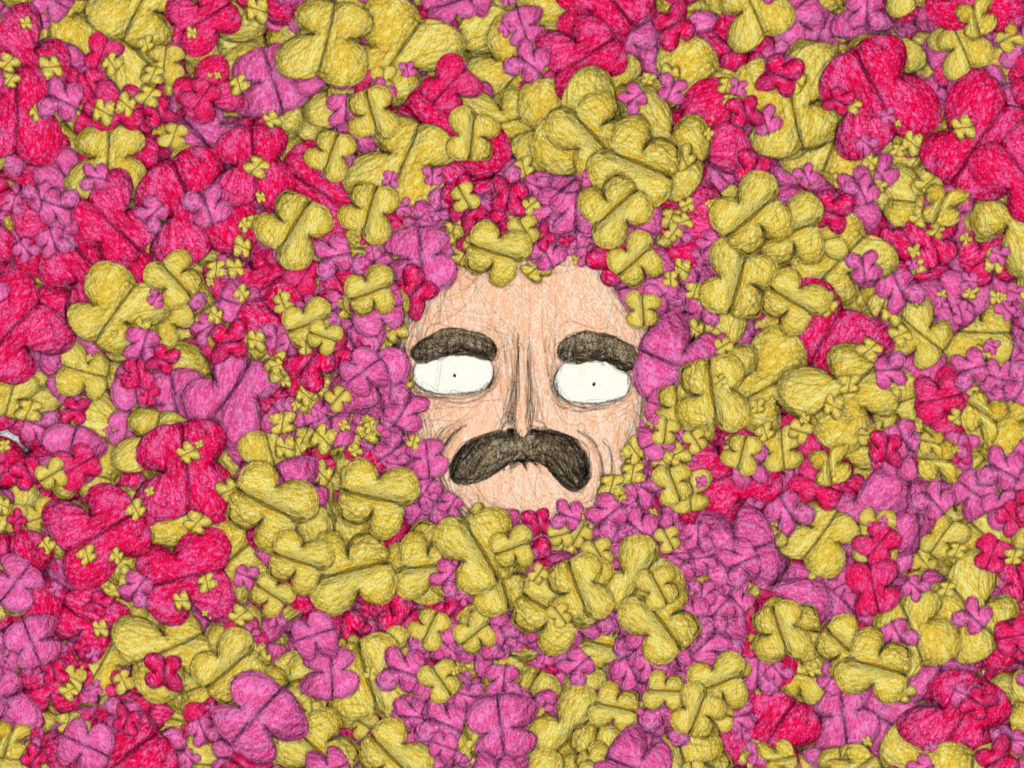Fjoralba Miraka: International Competition I

As a way of reflecting upon the difficult times we are experiencing due to the outbreak and influence of the COVID-19 pandemic in 2020, the International Animation Film Festival, organised by Anibar, is focusing its attention to Humans, what makes us human and how we interact with each other as humans. It is very fortunate – and refreshing – that in the category of international film there are 5 animated women’s films: stories directed by women and three of them are about women (with the exception, perhaps, of Urban Goat and Sheep, Wolf, and a Cup of Tea). France, Brazil, Germany and the Russian Federation are the countries represented in this category, and each film is offering a visual experience of the work of some interesting and talented women animators who reach out to the public to tell a story of their own. Here is a short review of the programme.
Symbiosis
With an honest eye about human relationships and a dedication for truthful representation, Hungarian animator Nadja Andrasev is telling the sad story of a cheated wife who starts investigating her husband’s affairs and gradually grows curious about the other women in his life. How does one coexist with a cheating husband? How does one stay in a relationship that is so crowded? These are the questions that arise from this story of betrayal and failed human relations. The urban environment is the key element of the story, an alienating place where we all live together in alienation, betrayal, and emotional frustration. The story is aesthetically ambivalent between the dark, lonely, sad urban space and the more colorful character-types, told in minimalistic terms. Symbiosis is a promising film with six wins and several nominations in various international film festivals.
Sheep, Wolf, and a Cup of Tea
Inspired by her own experience watching her grandmother using teabags on her eyes every night before going to bed, animator Marion Lacourt has brought to us this beautiful and abstract world of fantasy and dreams where the unconscious takes on a dark side and creates vivid imagery of confinement and escapade. Sometimes bordering the grotesque, and other times indulging into the super-reality, or surreality, the film tells the story of a family’s bedtime routine from the perspective of a child, before it completely immerses into the dreamworld where the child finds himself empowered, no longer restricted from reality and the oppressive social norms. Lacourt has brought this world of the unconscious into life mainly through the creative use of light, color, and sound which create an atmosphere of fear and awe at the same time.
Flesh
Five women with their stories, five animators with different styles, and one director with a unique vision, they all come together in this elaborate, powerful film which goes against misrepresentation and aims at delivering a clear and powerful message about the diversity of the woman identity in the most visceral way. Flesh is the debut film of director Camilla Kater and is already turning heads around in festival runs for its bold subject matter and inspired technique. This ‘profile’ film and its visual development create an acute non-embellished metaphor for the various stages of a woman’s life – starting from the early experiences of girlhood to the later experiences of menopause – offering us the real voices of the women at the center of the narrative which makes it a remarkably authentic piece with an effect of immediacy on the spectator.
Just a Guy
Taking its title from a phrase serial killer Richard Ramirez used in one of his interviews, Just a Guy is a film not about Ramirez but about some of the women who were romantically involved with him, including the director Shoko Harra herself who only exchanged one letter with him. Although it’s a film about love, as the director claims, it is a dark story that sheds light on the motives behind the women’s choice to get involved with him rather than the anger and frustration behind Ramirez’s atrocities. Combining collage and archival material with a sense of mysterious energy and fascinating sensuality, the film demythologizes the victimizer and humanizes the women who supported him, giving them a voice to speak their truth and escape the label of the damaged/ crazy/ demented women. A rare ‘documentary’ which culminates with interviewer and interviewees coming together at the very end, becoming one.
Urban Goat
A simple story about being new in and learning your way around a rural, traditional environment, Urban Goat also conveys a secondary message about reality and love. Wasting one’s life chasing the fantasy of perfect love instead of appreciating reality no matter how disappointing it might seem and ignoring those who are truly emotionally attached to you. The film has a straightforward storyline with humorous moments here and there which makes it more humane despite its goaty characters! The goat arrives in this new setting and leaves without having made any real connections, disappointed with the reality of the rural environment which does not match her idea of the ideal world.

Fjoralba Miraka: Biography
Fjoralba Miraka is a Hollywood film researcher (late 1960s – mid-1970s) and Ph.D. candidate at the Faculty of Media, Language, and Culture at Roehampton University in London where she occasionally lectures. She has a Master Degree in American Literature and Culture, has a Bachelor Degree in English as well, both diplomas from the Aristotle University of Thessaloniki, Greece. In 2020 her chapter on the history of Feminist Film Theory will be published in the first International Encyclopedia of Gender, Media, and Communication by Wiley Blackwell. Upcoming publications also include a chapter on director Martin Scorsese and Melodrama (by Bloomsbury Academic) and a chapter on Marcia Lucas (by Rutgers University Press). Fjoralba is currently developing a book proposal for Edinburgh University Press on the life and films of Xhanfize Keko. Meanwhile, she presents her subjects for further studies at national and international conferences.





